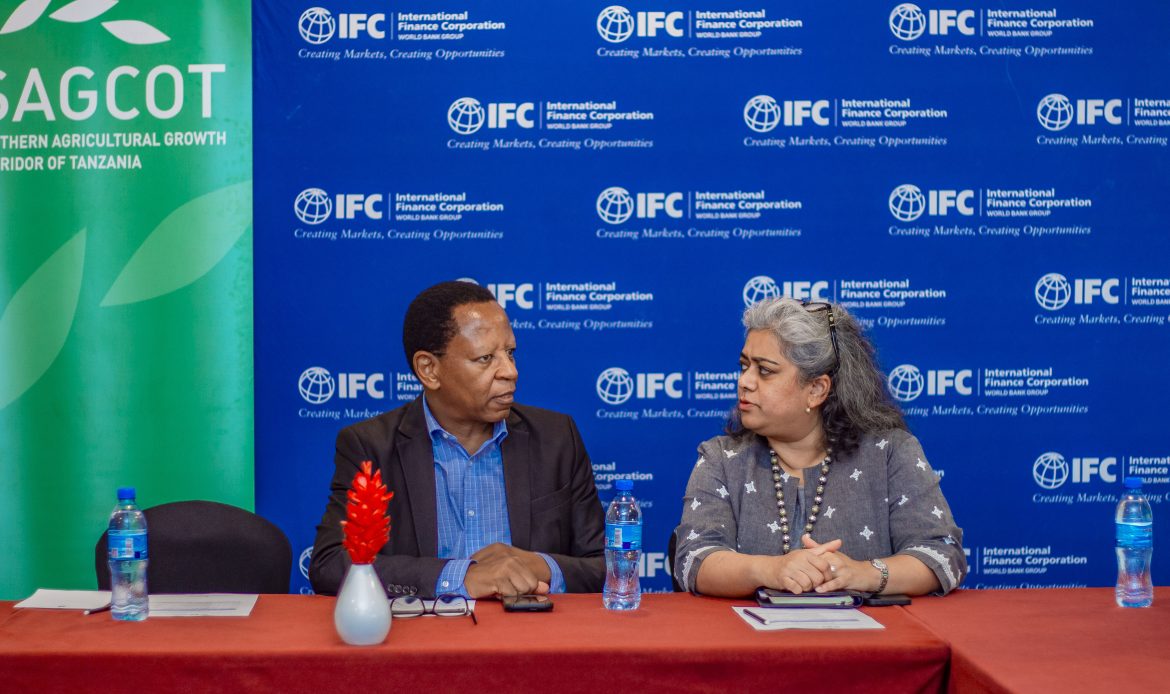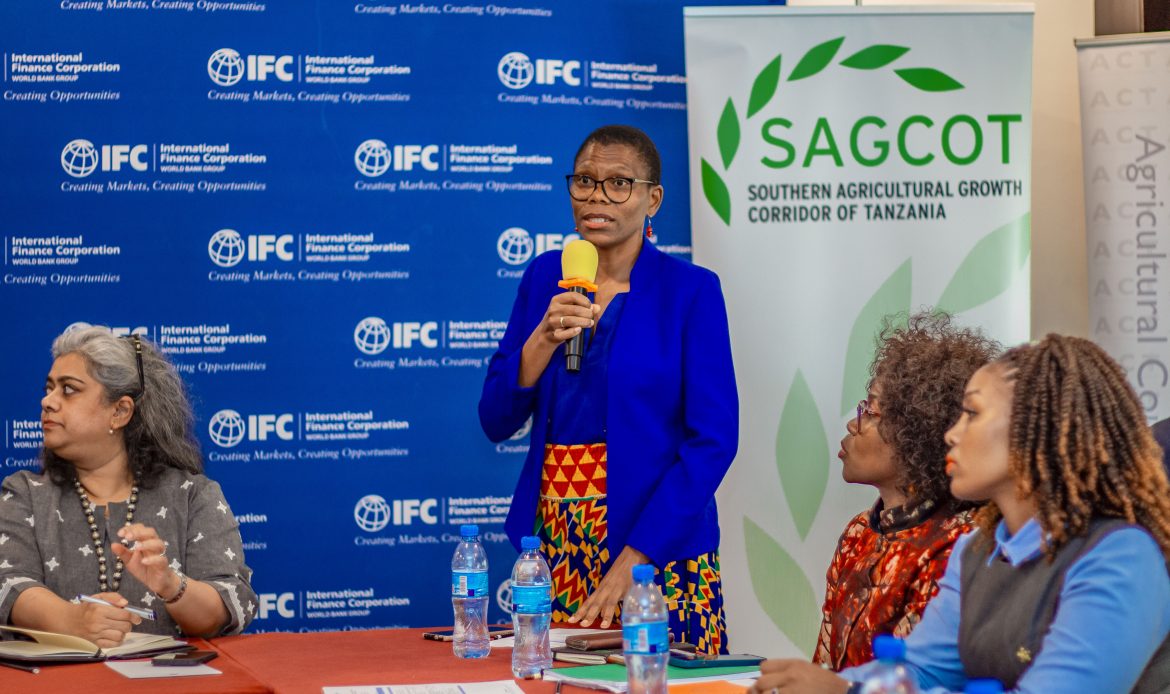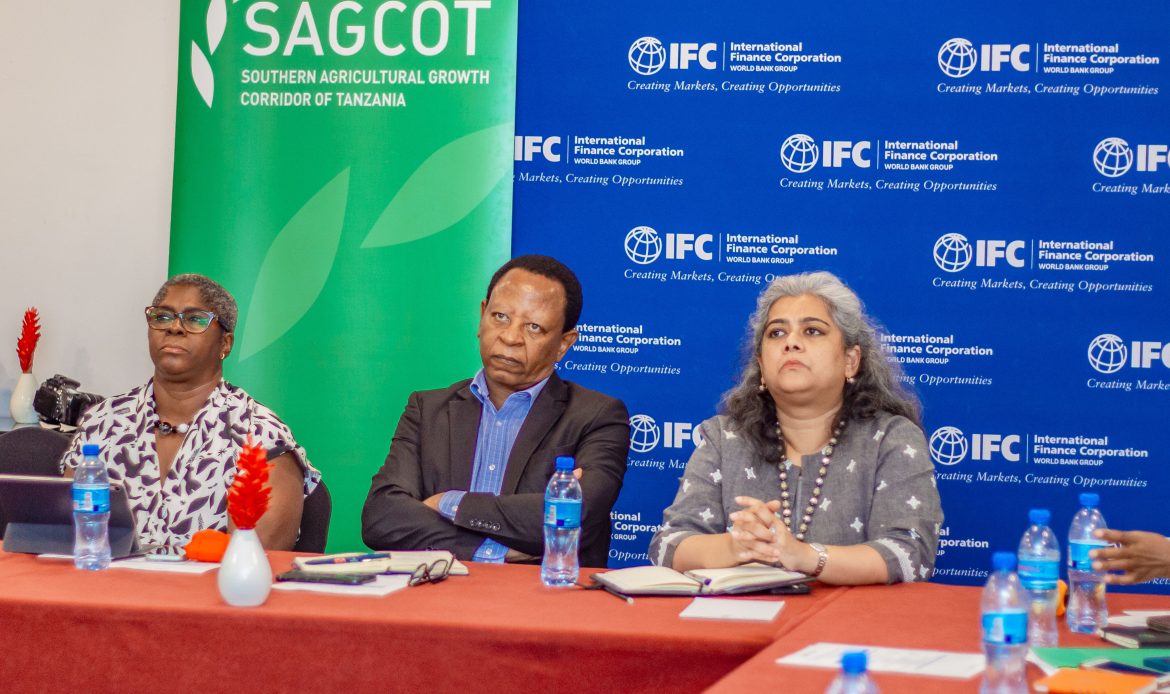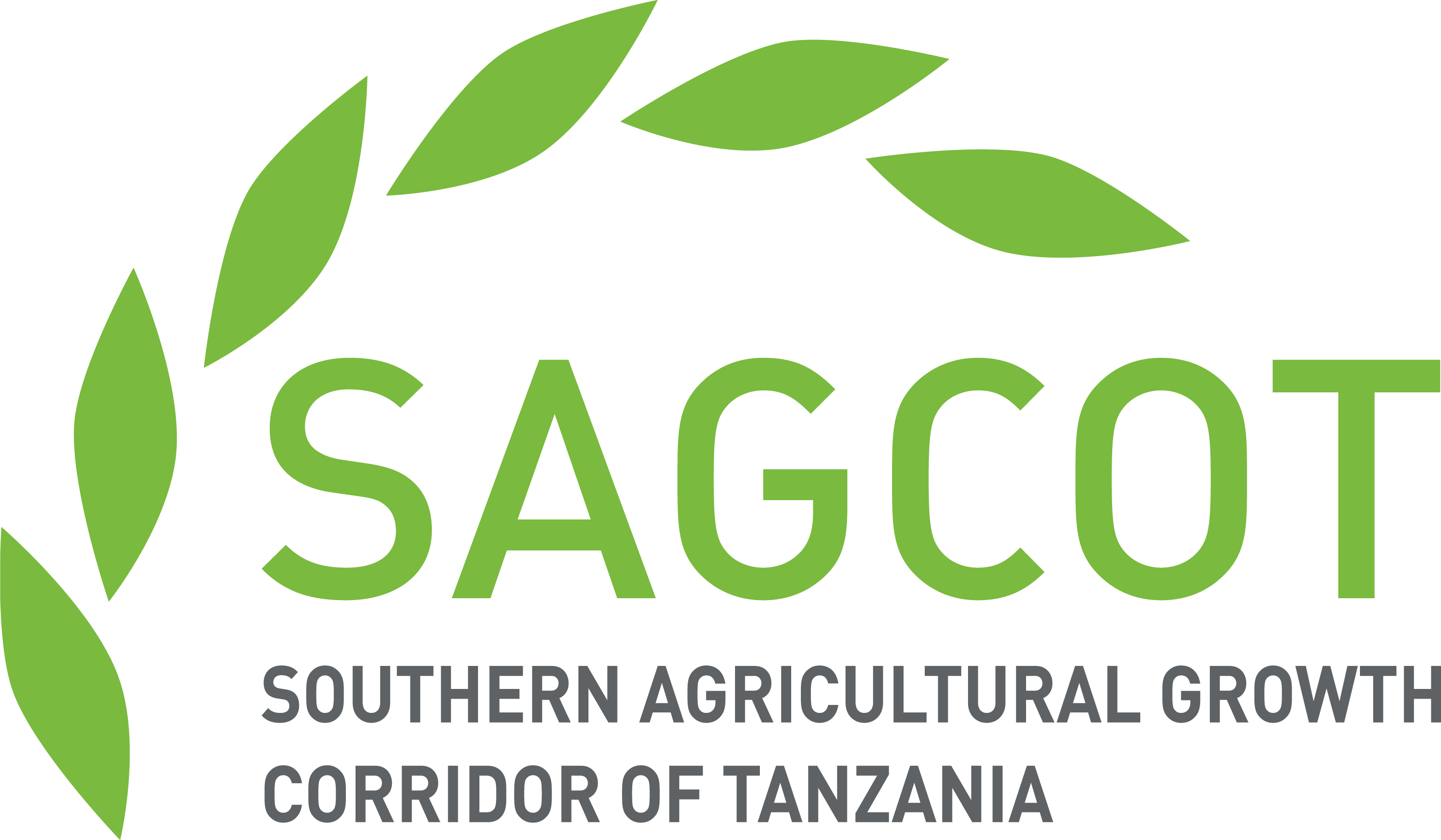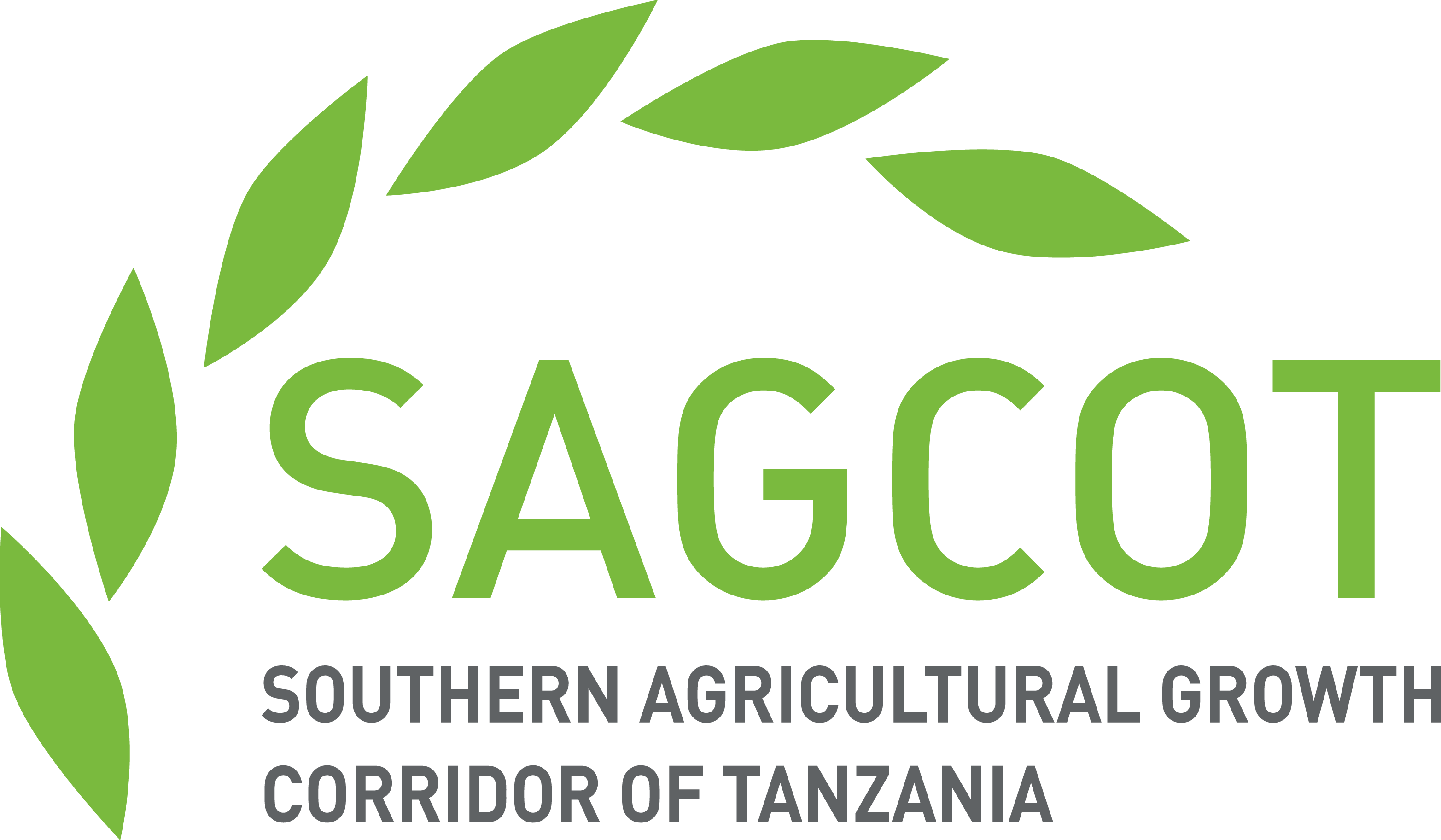Dar es Salaam, October 7, 2024 — The International Finance Corporation (IFC), in partnership with SAGCOT Centre Ltd., the Tanzania Investment Centre (TIC), and the Agricultural Council of Tanzania (ACT), hosted a landmark workshop in Dar es Salaam to present the preliminary findings of two key studies: the Tanzania Agricultural Value Chain Diagnostic and the Tanzania Warehousing and Warehouse Receipts System Diagnostic. These studies are designed to strengthen Tanzania’s agricultural sector by identifying investment opportunities, addressing existing challenges, and proposing strategies for sustainable growth.
The workshop, conducted both in person and virtually, convened a diverse group of stakeholders, including government officials, private sector investors, research institutions, and development partners. Participants engaged in discussions focused on reviewing the draft findings of the two diagnostics and providing feedback to refine recommendations that will shape future investments and policy directions in the agricultural sector.
The session began with opening remarks from Mr. Geoffrey Kirenga, CEO of SAGCOT Centre Ltd., and Ms. Paramita Dasgupta, Manager for Country Advisory and Economics, Eastern and Southern Africa, IFC. During his address, Mr. Kirenga announced that SAGCOT is transitioning into the Agricultural Growth Corridors of Tanzania (AGCOT), reflecting the organization’s evolution after a decade of fostering agricultural growth through strategic partnerships and targeted investments.
Strengthening Value Chains and Scaling Up Investments
Mr. Kirenga noted that private sector investments in the Southern Agricultural Growth Corridor over the past decade have reached an impressive USD 1.3 billion, with local, regional, and international funding. He further acknowledged the Tanzanian government’s critical role in this development, investing an additional USD 5 billion in key infrastructure such as hydropower, roads, electricity, research and development, and irrigation systems.
“The transformation of SAGCOT into AGCOT reflects the growth and expansion we have witnessed in Tanzania’s agricultural sector. We have engaged with nearly 1 million farmers through various value chains, including tea, potato, tomato, avocado, dairy, poultry, and fisheries,” Mr. Kirenga stated. “We are proud of the progress made so far, but we also recognize the need for innovative solutions to facilitate further investments in the sector.”
He emphasized that the organization will now focus on scaling initiatives to create a more conducive environment for private-sector investment. This would require addressing persistent challenges that hinder financial sector engagement and ensuring that existing investments yield maximum impact.
“Today, our private sector partners are at a stage where they need additional resources to expand their businesses. This calls for an improved business environment that attracts more financing from both local and international sources,” Mr. Kirenga said. “That’s why we have partnered with IFC to support us in making Tanzania’s agricultural sector more attractive to investors.”
He further explained that the corridor had become one of the most favourable areas for agricultural investments due to strong government support and a robust infrastructure network. The partnership between AGCOT and IFC aims to build on these strengths by addressing the key constraints faced by value chain actors and enhancing warehousing and storage systems, which are crucial for structured trade and agri-financing.
Mr. Kirenga expressed optimism about the new direction, noting that the recently launched agricultural master plan will serve as a blueprint for future investments. He also highlighted the importance of job creation, particularly for the youth, as one of the main objectives of the new strategy.
“With Tanzania’s young population actively seeking employment, we are committed to creating more opportunities within the agricultural sector. The government’s development agenda prioritizes a better tomorrow for the youth, and we see agriculture as a key driver in achieving that vision,” he added.
The critical role agriculture and agribusiness play in Tanzania’s economic potential
Ms. Paramita Dasgupta, Manager for Country Advisory and Economics, Eastern and Southern Africa, IFC, highlighted the critical role agriculture and agribusiness play in Tanzania’s economic potential, stating, “There is no need to emphasize to this group how important agriculture and agribusiness are for Tanzania’s growth. Agriculture is one of the key drivers of the economy, and we have seen a high level of commitment from the government and various authorities to support its development, as reflected in the country’s policy documents.”
She noted that the diagnostic studies were designed to identify opportunities and constraints within four key value chains—poultry, soya, avocado, and rice—while also assessing warehousing infrastructure and the Warehouse Receipts System. “The first part of today’s discussion will focus on investment opportunities and challenges in these selected value chains, covering aspects such as market demand, the operational landscape, and the regulatory and institutional frameworks,” she explained.
The second study, focusing on warehousing and storage systems, aimed to assess the availability and efficiency of existing warehousing facilities, evaluate financing needs, and determine the effectiveness of the Warehouse Receipts System. Ms. Dasgupta emphasized these studies’ significance in driving agricultural transformation, adding, “The completion of these reports is not the end of the process—it is just the beginning of a very important phase. We want to create an actionable roadmap that will enable us to scale up agribusiness in Tanzania, tackle systemic challenges, and unlock private sector investment.”
Ms. Dasgupta also underscored IFC’s commitment to supporting agribusiness in Tanzania through both firm-level advice and partnerships with government and regulatory bodies. “IFC remains committed to agribusiness across the African continent, and particularly in Tanzania. We want to increase our efforts both at the firm level and by working with government regulators and stakeholders to support the sector,” she stated.
Remarks by Mr. Gilead J. Teri, Executive Director of the Tanzania Investment Centre (TIC)
“At TIC, we are committed to mobilizing investments in warehousing infrastructure, recognizing the immense growth potential in this sector,” said Mr. Gilead J. Teri. “We have closely monitored the impact of investment in warehousing and logistics, and it’s clear that this area is pivotal for enhancing Tanzania’s agricultural value chains.”
He emphasized that the investment promotion strategy at TIC is being executed through a four-year calendar, divided into specific phases to ensure effective implementation. The first half of the calendar focuses on laying foundational activities, including regulatory reviews and streamlining processes to attract investors. He noted that substantial progress has already been made in removing registration bottlenecks and simplifying investor data access, facilitating a more investor-friendly environment.
Mr. Teri acknowledged the government’s robust support under the leadership of President Dr. Samia Suluhu Hassan, particularly in prioritizing the development of the agricultural sector, including warehousing and logistics. “The government’s unwavering commitment to improving agricultural productivity and storage facilities, particularly through the construction of modern warehouses, is a testament to the leadership’s vision for transforming the agricultural sector,” he stated.
He further highlighted TIC’s role in supporting these initiatives by creating a conducive environment for private sector investment. He reaffirmed TIC’s dedication to collaborating with stakeholders to develop modern warehousing infrastructure that meets international standards and boosts the efficiency of agricultural value chains. “Our goal is to ensure that these investments yield tangible benefits for the agricultural sector and contribute to the broader national economic development agenda,” Mr. Teri noted. “We look forward to continued collaboration with the government, private sector, and development partners in achieving sustainable growth and prosperity for all Tanzanians.”
Emphasizing the Strategic Importance of Value Chain and Warehousing Studies
The workshop highlighted the significance of two comprehensive diagnostic studies—the Tanzania Agricultural Value Chain Diagnostic and the Tanzania Warehousing and Warehouse Receipts System Diagnostic—in shaping the future of Tanzania’s agricultural sector. These studies serve as critical tools for identifying investment opportunities, addressing bottlenecks, and proposing targeted strategies to enhance the country’s agricultural value chains’ productivity, competitiveness, and market efficiency. The findings provide a roadmap for strengthening the sector through improved infrastructure, streamlined financial access, and enhanced stakeholder coordination.
Tanzania Agricultural Value Chain Diagnostic
The first session featured the Tanzania Agricultural Value Chain Diagnostic findings, presented by Unique Land Use Consultants. The study provided an in-depth analysis of four priority agricultural value chains in the Southern Agricultural Growth Corridor of Tanzania (SAGCOT)—rice, soya, avocado, and poultry. The diagnostic explored these value chains’ production, processing, and market potential, focusing on the investment landscape and infrastructure needs.
Key findings from the study revealed a significant growth potential for all four value chains, driven by increasing local and regional demand. However, several key challenges were identified, including:
- Limited Access to Finance: Smallholder farmers and agribusinesses struggle to obtain loans and investment capital due to stringent collateral requirements and limited financial products tailored to the agricultural sector.
- Inadequate Infrastructure: Deficient storage facilities, processing plants, and transportation networks hamper the efficiency and profitability of these value chains.
- Weak Coordination: There is a lack of effective linkages between smallholder farmers, large-scale producers, and market actors, which affects the overall competitiveness of these value chains.
To unlock the full potential of these value chains, the diagnostic recommended several targeted interventions:
- Improving Market Linkages: Strengthening connections between smallholder farmers and large agribusinesses through contract farming, cooperatives, and digital platforms to facilitate better access to inputs, technology, and markets.
- Enhancing Productivity and Value Addition: Investing in improved inputs such as high-quality seeds and feeds, modern farming techniques, and value-addition infrastructure (e.g., processing plants) to increase output and profitability.
- Promoting Public-Private Partnerships: Leveraging public-private partnerships (PPPs) to finance large-scale investments in processing facilities, logistics, and export-oriented projects.
Feedback from Participants: Stakeholders emphasized the need for continued efforts to address these challenges and enhance value addition in the identified value chains. They called for collaborative efforts to build capacity, streamline financial access, and integrate smallholder farmers into formal markets to achieve sustainable growth.
Tanzania Warehousing and Warehouse Receipts System Diagnostic
The second session, led by A2F Consultants, focused on the Tanzania Warehousing and Warehouse Receipts System Diagnostic. This study assessed the current warehousing infrastructure state and the Warehouse Receipts System (WRS) implementation in the SAGCOT region. The study identified key challenges related to the storage and post-harvest handling of agricultural commodities, which directly impact the efficiency and profitability of agricultural value chains.
Key findings included:
- Insufficient Storage Capacity: The current warehousing capacity in regions such as Morogoro is inadequate to meet the high production volumes, leading to substantial post-harvest losses estimated at around 40% for most commodities and up to 60% for perishable goods.
- Limited Adoption of the WRS: Despite its potential to streamline agricultural trade and finance, the uptake of the WRS remains low due to limited awareness, high operational costs, and complex procedures. Only a small percentage of farmers and agribusinesses utilize the WRS to access finance.
- Quality Assurance and Standards: Many existing warehouses lack the infrastructure and standards required to handle and store agricultural produce effectively. This affects the quality of stored goods and limits the use of warehouse receipts as reliable collateral for loans.
The study put forward several recommendations to improve the warehousing and WRS system:
- Investing in New Warehousing and Cold Storage Facilities: To address the mismatch between production capacity and storage availability, additional warehouses and modern cold storage units are being constructed, especially in regions like Morogoro.
- Upgrading Existing Facilities: Implementing targeted programs to rehabilitate and upgrade existing warehouses to meet quality standards, focusing on temperature control, pest management, and structural integrity.
- Promoting the WRS through Awareness Campaigns: Increasing awareness of the WRS’s benefits among farmers and agribusinesses and simplifying the certification process to encourage broader adoption.
- Enhancing Coordination between Key Stakeholders: Strengthening collaboration between the Tanzania Mercantile Exchange (TMX), Warehouse Receipts Regulatory Board (WRRB), and financial institutions to streamline processes and build trust in the system.
- Leveraging Digital Solutions: Introducing e-warehouse receipts and digital platforms to facilitate real-time information sharing on storage, transactions, and pricing, reducing paperwork and enhancing transparency.
Feedback from Participants: Participants discussed the need to make the WRS more accessible and user-friendly, particularly for smallholder farmers. They highlighted the importance of improving the regulatory framework and promoting public-private partnerships to attract investment in new warehousing facilities and ensure sustainable financing models.
Way Forward
The workshop provided a platform for stakeholders to discuss the findings of these critical studies and deliberate on the strategic actions required to address the identified challenges. The consensus was that targeted investments in value chain development, warehousing infrastructure, and the WRS are essential to enhancing Tanzania’s agricultural productivity, reducing post-harvest losses, and improving market efficiency.
The workshop brought together a diverse group of stakeholders from the agricultural sector. Attendees included representatives from the International Finance Corporation (IFC), SAGCOT Centre Ltd., the Tanzania Investment Centre (TIC), Swissport Tanzania, the World Food Programme, and several consultancy and research institutions such as the E2F team, Michigan State University, and UNIC Consulting. Participants from the private sector, including Exim Bank Tanzania and agro-processing firms like International Tanfis, as well as regional experts from Amberico in Kampala and Wellspring Development in Nairobi, also participated.
